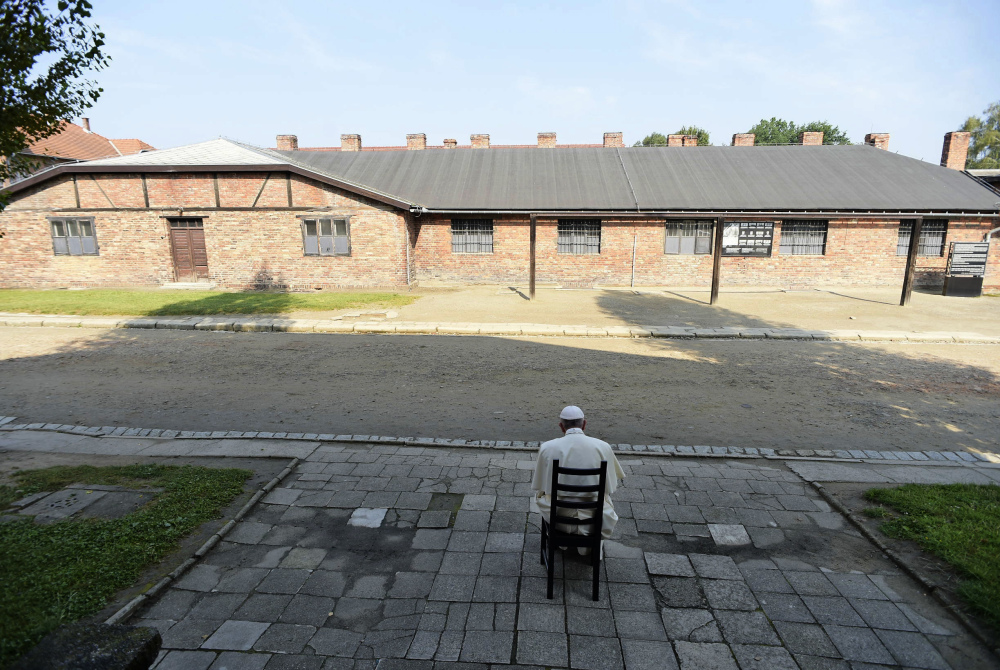OSWIECIM, Poland — Pope Francis paid a somber visit in silence to the Nazi German death camp of Auschwitz-Birkenau on Friday, with his only public comment a guest book entry begging God “forgiveness for so much cruelty.”
The Argentine-born pontiff made an early morning pilgrimage to the place where Adolf Hitler’s forces killed more than 1 million people, most of them Jews, during World War II.
Francis entered the camp on foot, walking slowly in his white robes beneath the notorious gate at Auschwitz that bears the cynical words “Arbeit Macht Frei (Work sets you free).”
After meeting briefly with 11 death camp survivors, he moved on to nearby Birkenau, a sprawling complex where people were murdered in factory-like fashion in its gas chambers. There he greeted 25 Holocaust rescuers.
Altogether, it was a deeply contemplative and private visit of nearly two hours that Francis passed in total silence, except for a few words he exchanged with the survivors and rescuers.
Vatican and Polish church officials explained that Francis wanted to express his sorrow in silence at the site, mourning the victims in quiet prayer and meditation.
However, he did express his feelings, writing in the Auschwitz memorial’s guest book in Spanish: “Lord, have mercy on your people! Lord, forgiveness for so much cruelty!” He then signed with his name in Latin, “Franciscus” and added the date “29.7.2016.”
Francis is the first pope to visit Auschwitz who did not himself live through the brutality of World War II on Europe’s soil.
Both of his predecessors had a personal or historical connection to the site. St. John Paul II, born in Poland, witnessed the unspeakable suffering inflicted on his nation during the German occupation during the war. His successor, Pope Benedict XVI, who visited in 2006, was a German who served in the Hitler Youth for a time as a teenager.
Francis prayed silently for more than 15 minutes before greeting survivors, one by one, shaking their hands and kissing them on the cheeks. He then carried a large white candle to the Death Wall, where prisoners at Auschwitz were executed.
At the dark underground prison cell that once housed St. Maximilian Kolbe, a Polish friar who sacrificed his life to save that of a fellow prisoner who had a family, Francis prayed again. A few shafts from a tiny window were the only light cast on the pontiff.
He then traveled 2 miles to Birkenau, the vast satellite camp where the Nazis murdered Jews, Roma and others from across Europe.
Invited guests, among them camp survivors and Christian Poles who saved Jews, stood in respect as the pope arrived, his vehicle driving parallel to the rail tracks once used to transport victims to their deaths there.
Send questions/comments to the editors.



Success. Please wait for the page to reload. If the page does not reload within 5 seconds, please refresh the page.
Enter your email and password to access comments.
Hi, to comment on stories you must . This profile is in addition to your subscription and website login.
Already have a commenting profile? .
Invalid username/password.
Please check your email to confirm and complete your registration.
Only subscribers are eligible to post comments. Please subscribe or login first for digital access. Here’s why.
Use the form below to reset your password. When you've submitted your account email, we will send an email with a reset code.